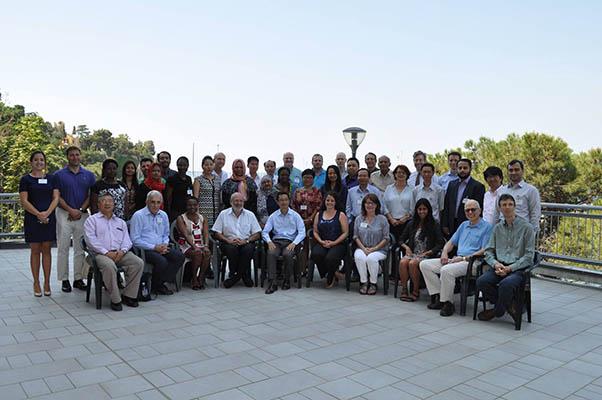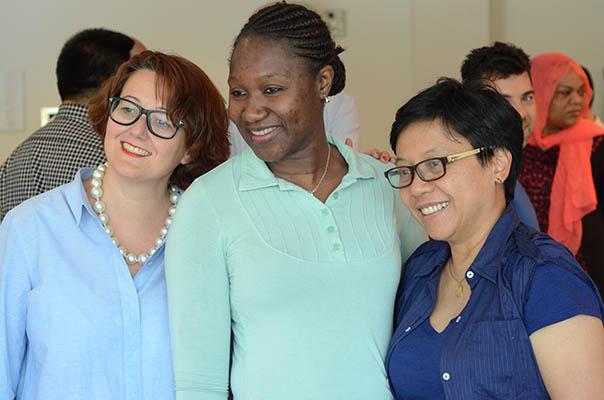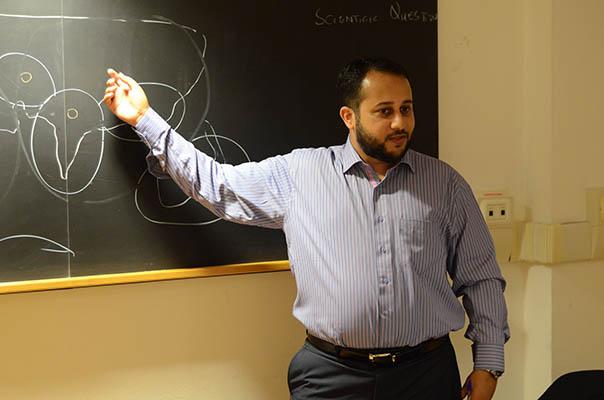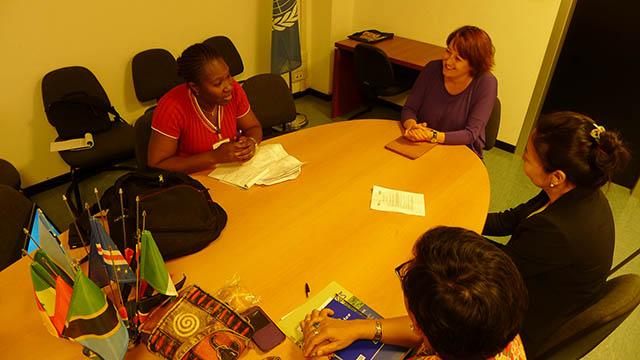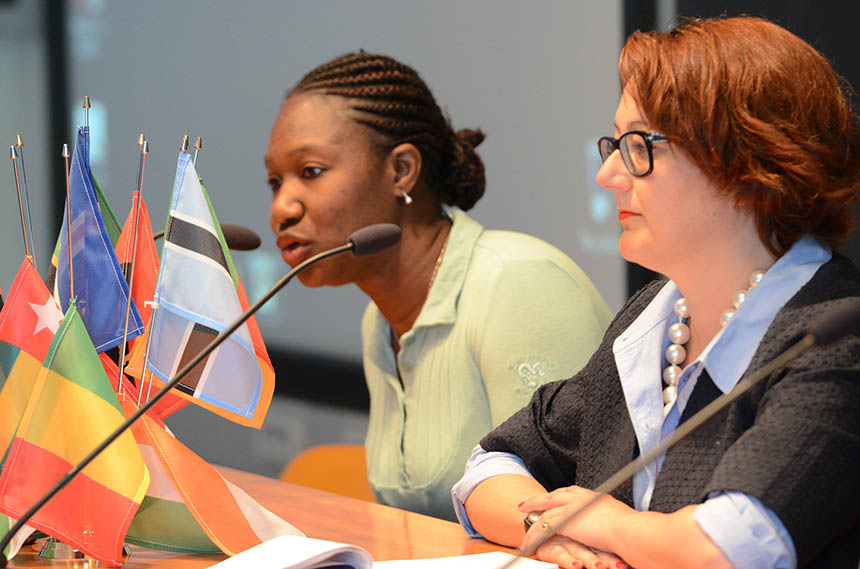 With infectious diseases throughout the world becoming resistant to existing drugs, microbiologist Hannah Ajoge of Nigeria came before a World Health Organization panel to urge it to act. If the global community was going to contain the threat, she explained, they needed to create a large, international scientific collaboration to study drug resistance.
With infectious diseases throughout the world becoming resistant to existing drugs, microbiologist Hannah Ajoge of Nigeria came before a World Health Organization panel to urge it to act. If the global community was going to contain the threat, she explained, they needed to create a large, international scientific collaboration to study drug resistance.
But Ajoge found herself confronted with scepticism. The European Union wanted to scale down its financial contribution because of the wobbly economies of some of its member states. Singapore had recently seen vast healthcare improvements and was more focused on the illnesses such as cancer and heart disease. Even a representative from Indonesia, where malaria kills thousands each year, remarked that their current priority is to shrink the death rates of pregnant mothers and young children.
The panel wasn’t real, but a role-playing exercise prepared by Ajoge, a postdoctoral fellow at Ahmadu Bello University in Nigeria and her teammates, Yayi Suryo Prabandari of Indonesia’s Gadjah Mada University, Marina Giampietro of the Graduate Institute of International and Development Studies in Geneva, Switzerland, Khosbayar Tulgaa of the Mongolian National University of Medical Sciences, and Jin Hyok Om of the Democratic People's Republic of Korea's Ministry of Foreign Affairs. It was the product of a weeklong science diplomacy course organized by the American Association for the Advancement of Science (AAAS) and TWAS in Trieste, Italy.
The course brought representatives from 30 nations together – Colombia, Laos, Nigeria and others – to discuss how to combine the rigorous knowledge creation of science with the subtle art of diplomacy. It was an opportunity not just for scientists to explore the culture of international policy, but to better understand how to pull its levers and create a better global environment for science.
A key element of the course was an exercise that split the participants into five groups. With the help of experienced mentors, the groups applied their new knowledge to regional and international scenarios such as water crises and the spread of drug-resistant diseases. At the end, they offered presentations, such as Ajoge's role-playing exercise, on how science diplomacy could be used as a tool to help resolve those issues.
With her colleagues playing their roles, Ajoge pressed her case. She told the EU that investing in disease research would save them money on health costs in the long run. She told Singapore that drug-resistant diseases won’t respect national borders, and urged Singapore to reconsider. And she assured the Indonesian representative that controlling infectious disease was important to their concerns about maternal and child health.
“We acknowledge your fight for a couple of years now on infectious disease and drug resistant strains. But this is a continuous fight between the human race and microorganisms,” Ajoge told the Indonesian representative. “Concerning maternal health, worldwide, infectious disease has been responsible for the death of the most pregnant women.”
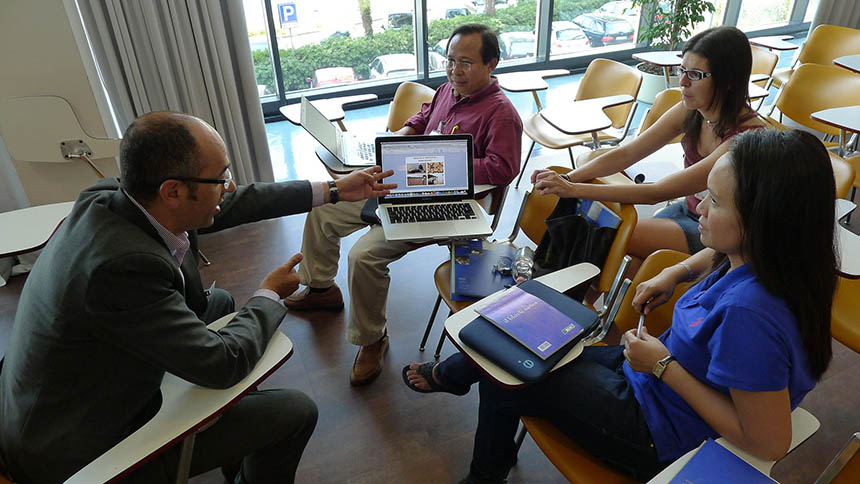 After the event, she said that the programme helped her understand the challenges faced by policymakers focused on national interests and how to properly communicate scientific needs to them. “I’m a scientist and my skills in – some people call it soft power – are very weak,” she said. “How the policies get created has never really been my problem.”
After the event, she said that the programme helped her understand the challenges faced by policymakers focused on national interests and how to properly communicate scientific needs to them. “I’m a scientist and my skills in – some people call it soft power – are very weak,” she said. “How the policies get created has never really been my problem.”
She added that she plans to encourage scientists in her home country to understand science diplomacy, because policymakers need to understand how science can help priorities there, such as alleviating poverty. Also, scientists need to be interested in the policies that affect their work.
“It’s not just doing the work, it’s the environment to do the work that matters, and diplomacy is going to create the right environment for you,” Ajoge said.
The second AAAS-TWAS annual summer course, held from 8-12 June, was organized by the AAAS Center for Science Diplomacy and by the TWAS science diplomacy office. It's the product of an agreement signed between AAAS and TWAS to collaborate on a science diplomacy programme, along with numerous other workshops and events that have helped expose developing world researchers and junior policymakers to the potential benefits of mixing science and diplomacy.
Throughout the week, participants heard from numerous high-level speakers on science diplomacy and science communication, including a keynote lecture by New Zealand’s Chief Science Adviser Sir Peter Gluckman, a panel on how national circumstances shape science diplomacy and presentations on how to communicate important scientific ideas to the public by framing them simply and powerfully.
Aid Effectiveness Specialist Sengphachanh Sonethavixay of the National Agriculture and Forestry Research Institute in Laos was part of a team that explored how to manage the difficult, international politics of managing the Mekong River, which runs through China, Myanmar, Laos, Thailand, Cambodia and Vietnam.
Laos only has a population of about 6.7 million people, and Sonethavixay said she particularly liked Gluckman’s talk on how small countries can take advantage of science diplomacy to raise their international standing. She also liked some of the points made about how diplomacy isn’t necessarily between countries, but can also take place within countries but between different sectors. “We don’t have this discussion back home in Laos,” she said. “(The course) is a starting point for us as a developing country to learn from others.”
The course was a life-changing experience for Abdul Majid Qureshi, a research scholar at COMSATS in Pakistan whose team explored how an international effort to promote vaccine research could improve relationships between countries. He saw it as an opportunity to not only learn about science diplomacy, but to link up with scientists and policy experts from around the world.
“Pakistan is a country that is already facing international isolation because there are terror threats and people have a stereotyped perception about Pakistanis,” he said. “So coming here and talking about my country to people was also part of a diplomatic effort.”
One scientist Qureshi worked closely with was his teammate, Paula Perez Espitia with the Colombian Caribbean Observatory in Colombia.
Espitia worked in a laboratory for six years before she started to take notice of how policy affects her work. But as she continued to work on research related to food security she began to realize how a lack of technology was a burden on Colombia’s agricultural development, and she began to nurse doubts about her long-standing approach as a scientist. After all, a nation will struggle to have enough food for a growing population if it doesn’t have access to modern agricultural technology.
“Some people have the idea that if you started in the science field you have to stick in the science field, that there is no way to combine fields like science and diplomacy,” she said. “This course is very valuable for me because it shows me that they could be combined and integrated in an effective way to have a bigger impact on the community in my region.”
Sean Treacy
See TWAS's Flickr page for photos from the event.


